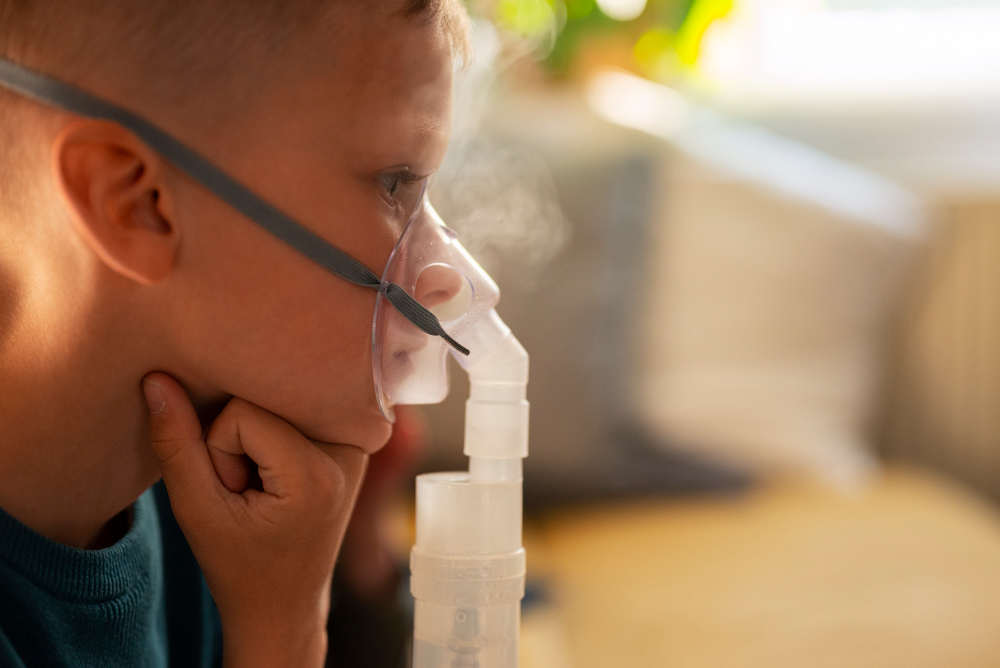
Understanding and Managing Asthma Attacks: Symptoms, Causes, and Treatments
Asthma, a prevalent condition impacting a significant portion of the population, manifests through symptoms like difficulty breathing and respiratory distress. Asthma attacks exacerbate these symptoms, posing challenges in managing the condition effectively. In this article, we delve into the symptoms, causes, and treatments of asthma attacks to aid sufferers in recognising and addressing this condition promptly.
Symptoms of Asthma Attack:
Shortness of Breath: Often the initial and most noticeable symptom, characterised by a sensation of insufficient oxygen intake, especially pronounced during physical exertion.
Wheezing: A prevalent symptom marked by a whistling sound emanating from the chest during breathing, indicative of airway constriction, a hallmark feature of asthma.
Coughing: Asthma-induced coughing may manifest as either dry or productive, possibly worsening at night or during physical activity.
Chest Tightness: Another common symptom attributable to airway narrowing, often likened to a heavy pressure on the chest, signaling an impending asthma attack.
Fatigue: Resulting from decreased oxygen levels in the body, fatigue may indicate asthma or underline broader issues such as sleep apnea or deprivation.
Shortness of Breath After Exercise: Post-exercise shortness of breath, a frequent asthma symptom, may stem from weak chest muscles or constricted airways.
Anxiety: Feelings of anxiety can accompany asthma, often triggered by a perceived lack of control over symptoms, potentially leading to panic.
Causes:
Allergens: Common allergens like dust mites, pet dander, pollen, and mold can trigger asthma attacks by inflaming the airways.
Airborne Irritants: Exposure to environmental irritants such as air pollution, tobacco smoke, and strong odors can provoke asthma attacks in susceptible individuals.
Respiratory Infections: Viral respiratory infections, particularly in children with compromised pulmonary function, constitute significant asthma triggers.
Exercise: Intense physical activity can induce asthma attacks due to heightened breathing rates and exertion.
Hormonal Changes: Fluctuations in hormones, such as those occurring during menstrual cycles or pregnancy, may precipitate asthma flare-ups in some individuals.
Acid Reflux: Gastroesophageal reflux disease (GERD) can exacerbate asthma symptoms by causing airway inflammation.
Medications: Certain drugs like aspirin, NSAIDs, and beta-blockers can trigger asthma attacks in sensitive individuals.
Treatment:
Medications: Long-term and quick-relief medications are pivotal in managing asthma symptoms. Anti-inflammatory medications like corticosteroids and anti-leukotrienes mitigate inflammation, while bronchodilators provide immediate relief during attacks by dilating airways.
Lifestyle Changes: Avoiding asthma triggers, such as pet dander and smoke, coupled with regular exercise, can significantly alleviate symptoms and reduce the frequency of attacks.
Alternative Treatments: Some alternative therapies like dietary adjustments, relaxation techniques, and acupuncture may offer relief from asthma symptoms, albeit consultation with a healthcare professional is advisable.
Self-Management: Education on asthma, including identifying triggers and understanding prescribed medications, empowers individuals to actively manage their condition, in collaboration with healthcare providers, for optimal outcomes.
Understanding the symptoms, triggers, and treatment options for asthma attacks is crucial for effective management and improved quality of life for individuals living with this condition.
By adopting proactive measures and seeking appropriate medical guidance, asthma sufferers can navigate their condition with greater confidence and control.

Leave a Comment
(0 Comments)